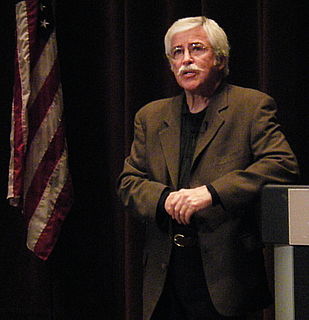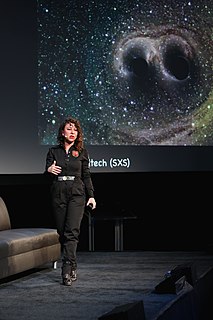A Quote by Steven Hall
We only see starlight because all the stars are bleeding.
Related Quotes
A hundred years ago, Auguste Compte, ... a great philosopher, said that humans will never be able to visit the stars, that we will never know what stars are made out of, that that's the one thing that science will never ever understand, because they're so far away. And then, just a few years later, scientists took starlight, ran it through a prism, looked at the rainbow coming from the starlight, and said: "Hydrogen!" Just a few years after this very rational, very reasonable, very scientific prediction was made, that we'll never know what stars are made of.
Aristotle taught that stars are made of a different matter than the four earthly elements— a quintessence— that also happens to be what the human psyche is made of. Which is why man’s spirit corresponds to the stars. Perhaps that’s not a very scientific view, but I do like the idea that there’s a little starlight in each of us.
You couldn't be here if stars hadn't exploded, because the elements - the carbon, nitrogen, oxygen, iron, all the things that matter for evolution - weren't created at the beginning of time. They were created in the nuclear furnaces of stars, and the only way they could get into your body is if the stars were kind enough to explode. So, forget Jesus. The stars died so that you could be here today.
Oh, what a catastrophe, what a maiming of love when it was made personal, merely personal feeling. This is what is the matter with us: we are bleeding at the roots because we are cut off from the earth and sun and stars. Love has become a grinning mockery because, poor blossom, we plucked it from its stem on the Tree of Life and expected it to keep on blooming in our civilized vase on the table.
There are faint stars in the night sky that you can see, but only if you look to the side of where they shine. They burn too weakly or are too far away to be seen directly, even if you stare. But you can see them out of the corner of your eye because the cells on the periphery of your retina are more sensitive to light. Maybe truth is just like that. You can see it, but only out of the corner of your eye.

































